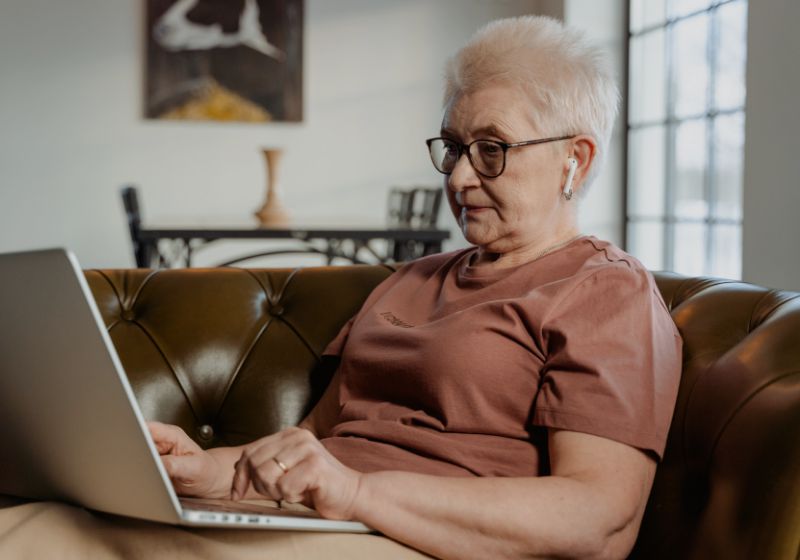Many researchers anticipate that the number of people in their 80s and 90s living alone will dramatically increase in the next 20 years. The Harvard Joint Center for Housing Studies notes that the first baby boomers will reach the age of 80 within the next decade; by 2038, there will be 17.5 million single-person households in the 80s and over category — which is more than double the 8.1 million households in 2018. As we are living longer, older adults living alone is an important issue to recognize.
Compared to people of the same age living as couples or in assisted living communities, senior citizens living independently have unique needs that require more support. They’re more likely to report difficulties with mobility, self-care, and other tasks related to living alone. If you’re an older adult going solo, here are five tips to live by.
Prepare delicious, healthy meals
Living alone can lead to unhealthy dietary habits like skipping meals or eating instant and processed foods. Older adults should prepare their own foods as much as possible instead. Not only would you be able to pay close attention to what goes into your food, but cooking keeps the mind active. Carrying out the steps to a recipe, finding the right ingredients, and calculating correct portions can help sharpen seniors’ minds.
Following the MIND Diet, in particular, can be especially helpful in reducing the risk for developing dementia or Alzheimer’s disease. The MIND Diet is a combination of Mediterranean and DASH diets, and researchers have found that sticking to this diet can help minimize the impact of protein deposits that build up in between the nerve cells of the brain.
Maintain your health through exercise
A healthy body is key to self-sufficiency, so older people living alone should stay physically active. Exercise enables senior citizens to fight aging health conditions, protect themselves from any injuries, and reduce stress in the long run.
In fact, insurance provider KelseyCare Advantage even offers fitness programs in their medical plans. Under their SilverSneakers program, older adults can stay in great shape through different wellness activities. Elderly adults should check their insurance plans for a similar, value-adding benefit and make the most out of the plan they’re paying for by joining a fitness regimen.
Have regular checkups
Older adults living independently should stay on top of medical issues through yearly check-ups and preventive health measures. In our article called If You Plan To Live Longer…, we discussed how healthcare advocates suggest that it’s best to start addressing biological aging in midlife when prevention is still possible and before heavy organ damage has occurred.
Of course, if you’re already past midlife, the next best time to take good care of your health is today. Fortunately, there are new conveniences in healthcare like telemedicine; these systems allow you to consult with your doctor without needing to leave home. You should also compile your medical records, medications, allergies, and other personal information for easy access.
Use technology to keep in touch with loved ones
Mental health conditions tend to occur when seniors spend too much time in isolation, so it’s important to include regular opportunities for social interaction. Scheduling daily check-in phone calls with family, friends, or neighbors is a great way to socialize, and it can be a safety measure as well. If you don’t initiate or respond to their calls, someone would know to drop by and see if you’re okay.
You can take this further by learning how to use tech devices as well. Using a computer or a tablet allows you to take advantage of social networking platforms, which often have video conferencing features. This would let you stay in close contact with your grandchildren, or loved ones who live far away.
Volunteer for causes you care about
Volunteering can greatly benefit older adults in different ways. The University of Zaragoza found that seniors who support others through volunteer activities often improve life satisfaction, overall health, and life expectancy. They are able to remain active, reduce feelings of loneliness, and contribute to the common good.
Belonging to a volunteer network also lets seniors feel like they belong to their community more. You can lend a helping hand in soup kitchens, local gardening projects, or even become a foster grandparent. Some agencies can assist you if you can’t leave your home; they may have programs that need people to write letters, craft goods, or talk to people over the phone.
For more tips on aging well, visit the latest posts on the Living to 100 Club blog.
This article was specially written by Alice Palmer, a guest author of the Living to 100 Club. Alice can be reached at alice.palmerblogs@gmail.com.


